Ruyi He: Going mainstream at all levels
Updated: 2014-09-26 06:14
By CAI CHUNYING in Washington(China Daily USA)
|
|||||||||

 |
|
Ruiyi He is president of the Coordination Council of Chinese-American Associations. [Photo by liu chang / China Daily] |
 Few people know that Virginia Governor Terry McAuliffe once ran his campaign in a traditional Chinese garment. It was in front of 2,000 or so Chinese Americans who gathered at a performance gala to celebrate the Chinese New Year in the spring of 2013.
Few people know that Virginia Governor Terry McAuliffe once ran his campaign in a traditional Chinese garment. It was in front of 2,000 or so Chinese Americans who gathered at a performance gala to celebrate the Chinese New Year in the spring of 2013.
McAuliffe's appearance generated loud applause. His opponent, Republican Kenneth Cuccinelli, also showed up on stage, each delivering a speech to woo potential voters.
The event was organized by Ruiyi He, president of the Coordination Council of Chinese-American Associations (CCCAA), the largest organization serving the Chinese-American community in the greater Washington area.
"I believe it was the first time a gubernatorial candidate and the Chinese community got so close to each other," recalled He during an interview with China Daily. "I am not sure whether the night helped McAuliffe in his tight race or not, but at least he now knows we are here."
Ever since taking the helm of CCCAA in 2011, He has been trying hard to better connect the organization and the Chinese community with mainstream society. The appearances by McAuliffe and Cuccinelli was one of He's successful events at the state level.
Then came the county level. Upon learning that the government of Montgomery County, Maryland, is looking for a sister Chinese city and planning to send a business delegation to China, He rallied members of CCCAA and other affiliated Chinese-American organizations to provide information, connections and logistics.
The 84-member delegation visited four cities in China. It reached agreements with one sister city and one friendship city, met high-profile officials and entrepreneurs, and jump started a series of collaborative projects in biotechnology and investment.
Days after the delegation returned from China, He received a letter from the county council member who participated in the trip, thanking him and CCCAA for helping make the visit a success.
"They were surprised to discover that we have such broad and deep connections with resources in China," said He. "Now whenever they need help related to China, they think of us. And they are readily accessible when we need support."
He did not miss the outreach at the city level either. A bright red banner reading "Chinese Community'' and dozens of performers beating traditional Chinese drums, organized by CCCAA, adorned this year's Memorial Day parade in Rockville, Maryland, a tradition of 70 years and one of the most-attended local events with about 20,000 spectators.
"The Chinese population is growing steadily in many cities. We ought to actively participate in and contribute to local events. That is the most fundamental way of going mainstream," said He, who arrived in the United States as a visiting fellow at the National Institutes of Health (NIH) in 1988 after completing his master's degree in medicine at China Medical University.
Like many community leaders, He has a busy professional life and can only accomplish his volunteer work in spare time. The two platforms, however, demand something in common — leadership skills and team spirit, which He has showcased during his 15 years working for the US Food and Drug Administration (FDA), the federal agency responsible for regulating and supervising food and drug products.
He has been recognized many times by the FDA with awards, including a "Multi-tasker" Leadership Award, Excellence in Mentoring Award, and the Department of Health and Human Services Secretary's Award for Distinguished Service. He has been a medical team leader at the FDA since 2004, leading a group of scientists in evaluating various drugs in gastroenterology.
"We are responsible for releasing a drug which many people may end up using. We have to be extremely careful," said He, citing one of his signature works, a guidance on drug-induced liver injury he drafted as the main author, which has helped to set standards for the drug industry and resulted in an FDA Recognition Award in 2008.
 He's expertise at the FDA is much needed in China. He is often invited by Chinese universities and pharmaceutical agencies to share insights on how to improve drug regulation in China.
He's expertise at the FDA is much needed in China. He is often invited by Chinese universities and pharmaceutical agencies to share insights on how to improve drug regulation in China.
"China is catching up rapidly in this field, but there is still a long way to go," said He, adding that he is glad that he can help.
He's connections with China have always been a central activity of his life in the US. He used to host many newly arrived hometown fellows and students. He became the president of Northern Provinces Hometown Association in 2005, and two years later vice-president of CCCAA, the overarching organization for all kinds of hometown associations in the nation's capital region.
He has witnessed the evolution of Chinese immigrants in recent decades, which prompted him to go beyond the traditional functions of CCCAA.
"In the past, we mainly helped new immigrants settle their life in a new land and provided cultural activities to ease their homesickness. Nowadays, immigrants from China often are well-heeled professionals or well-financed students, the need is no longer that strong," said He who has spent roughly the same number of years in the US and China.
With most Chinese Americans now achieving middle-class status and playing indispensible roles in various social sectors, He is hoping the CCCAA can lead the Chinese community to go mainstream.
"We want to be recognized and become an organic part of the society, not only economically or professionally, but culturally and politically. Only through this can we build a good foundation for generations to come," He said.
Much of He's time is also devoted to managing an adult day-care center for senior Chinese Americans in the region, which he and a few community leaders launched one year ago.
"Many seniors had lived a very tough life during China's tumultuous years. They are coming here to be with their children, often sacrificing their social connections in China. We hope to make them feel at home and well-connected here," He said.
The center is also the home for the Washington Culture and Exchange Center, an organization devoted to promoting cultural exchange between China and the US at the people-to-people level.
"If all the grassroots organizations that are similar to us can function as a bridge and bring cultural and economic collaboration between our two countries at local and community levels, we can really build an ever-lasting and far-reaching US-China relation that can withstand any difficulties," He said.
charlenecai@chinadailyusa.com

 Daredevil dancer conquers mountain
Daredevil dancer conquers mountain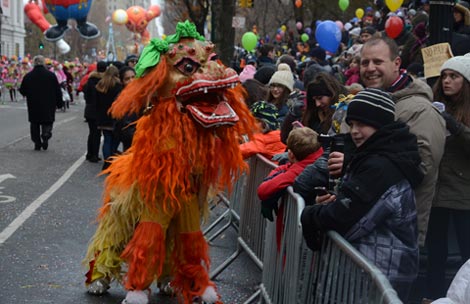
 Chinese float gives joy at Macy's parade
Chinese float gives joy at Macy's parade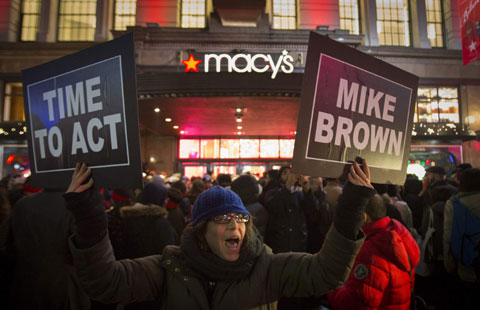
 Calm comes to troubled Ferguson
Calm comes to troubled Ferguson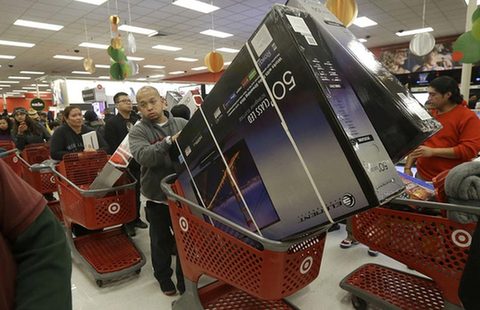
 6 things you should know about Black Friday
6 things you should know about Black Friday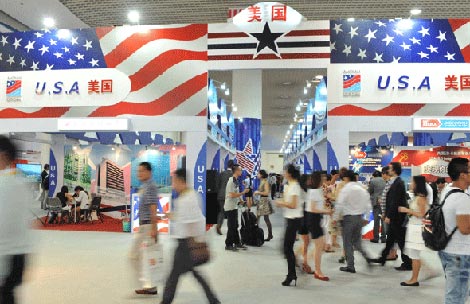
 Visa change may boost tourism to the US
Visa change may boost tourism to the US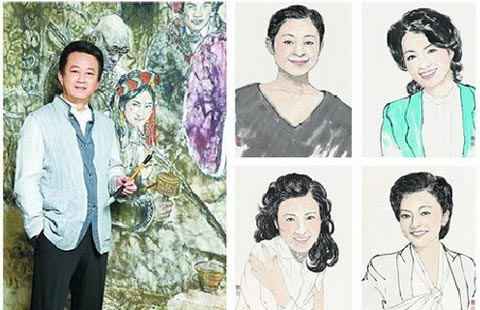
 China's celebrity painters
China's celebrity painters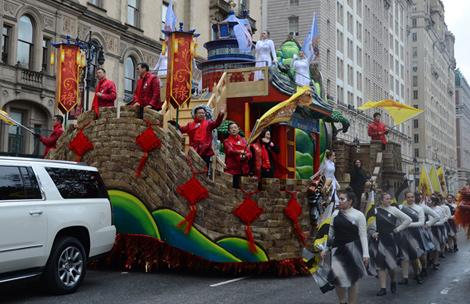
 Beauty of Beijing float making debut in Macy's parade
Beauty of Beijing float making debut in Macy's parade
 Rescue dogs show skills in NW China
Rescue dogs show skills in NW China
Most Viewed
Editor's Picks
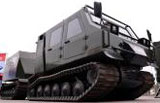
|

|

|

|
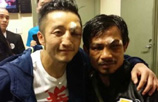
|

|
Today's Top News
China, US fight terror on the Internet
How to give is focus of philanthropy forum
China, US diverge on approaches to nuclear energy
China's local govt debt in spotlight
Macy's looks to appeal to more Chinese customers
Clearer view of Africa called for
Cupertino, California council is majority Asian
BMO Global Asset Management Launches ETFs in Hong Kong
US Weekly

|

|








